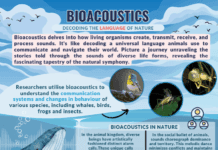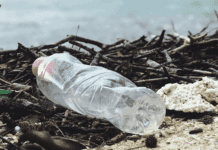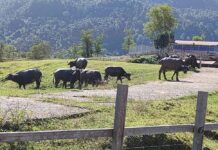BY JAYASYALINY JAYARAJ
SHAH ALAM : The third edition of the biennial youth conference entitled “Building Bridges for Sustainable Consumption and Production (BB4SCP)” was recently held in Shah Alam – echoing WWF-Malaysia’s theme “What’s with Plastics?”
The four-day interactive and informative session aimed to align with the Sustainable Development Goals (SDGs). The conference also served as a platform to empower youth towards a more sustainable lifestyle.
In her speech, Helina Yow, Director of Partnerships WWF-Malaysia said: “WWF-Malaysia recognises the importance of investing time and resources to ensure that youths truly become innovators, thinkers and problem solvers.”
She also encouraged delegates to ask thought provoking questions to help create a change for the future generation. Conference partner, Malaysian Plastics Manufactures Association representative, CY Wee encouraged the practice of reducing, refusing and reusing plastics as much as possible. According to her, “Plastics are rigid but light, flexible but durable. None of the other materials can replace these characteristics.”
She said, plastics are not the core issue but mismanaging plastics is the crucial problem which must be promptly dealt with.
“Plastic bottles emit the least carbon footprint during production, this also means that by reusing it several times, we are actually further reducing its carbon footprint,” she pointed out.
She also said that if we look at plastics as “money”, perhaps recycling will become a regular habit among the public. According to Dr S. Sri Umeswara, CEO and Founder of Era Suria Ecopreneurs Sdn Bhd, a circular economy expert, people nowadays are more inclined towards convenience rather than sustainable lifestyle, hence leading to mismanaged waste. Sri Umeswara emphasised on the importance of producing products and packaging materials with recovery and circularity in mind.
“This way, the life-cycle of materials will be extended, therefore reducing the use of natural resources,” he said, emphasizing that linear economy should be replaced by circular economy.
He said: “Malaysia does not have enough supply of clean plastics. Imported plastics are less contaminated, thus, Malaysia has been importing plastics. This issue has to be sorted out at the source.”
Over 80 delegates took part in the conference with a will to combat the “global plastic issue”. Exposed to various platforms to exchange ideas, the youth delegates took part in workshops, parallel sessions, round-table discussions, and field trips.
The conference also invited industry experts, social enterprise vendors, and business owners to help paint a better understanding of the plastic pollution crisis.
An open café discussion was also conducted whereby several pressing issues were discussed and brainstormed among the youth delegates. Some of the topics discussed include what the industries can do to alleviate plastic pollution, education on sustainable development for young children, responsible shopping and zero waste, waste management in Sri Lanka and sustaining volunteerism.
Dr K. Nagulendran, Deputy Secretary-General for Environment & Climate Change, MESTECC explained the importance of rethinking the way we consume, manage, recover and source plastic. He then added that this initiative is parallel to the Malaysia’s Roadmap towards Zero Single-Use Plastics 2018 -2030.
Dato’ Raymond Sng, Vice-President of the Malaysian Plastics Manufacturers Association (MPMA) in his speech emphasised the importance of providing a platform to educate the youth group on sustainable waste management.
“They will take the knowledge into the future and demand for change when they are in a position to do so”, he said.
In an effort to bridge the gap between consumers and producers, the BB4SCP conference also featured a sustainable fair sponsored and hosted by Paradigm Mall where more than twenty green vendors provided alternatives for sustainable options, in terms of consumer products, services and ideas. This is to demonstrate that there is always a solution or an alternative to our current lifestyle.

















